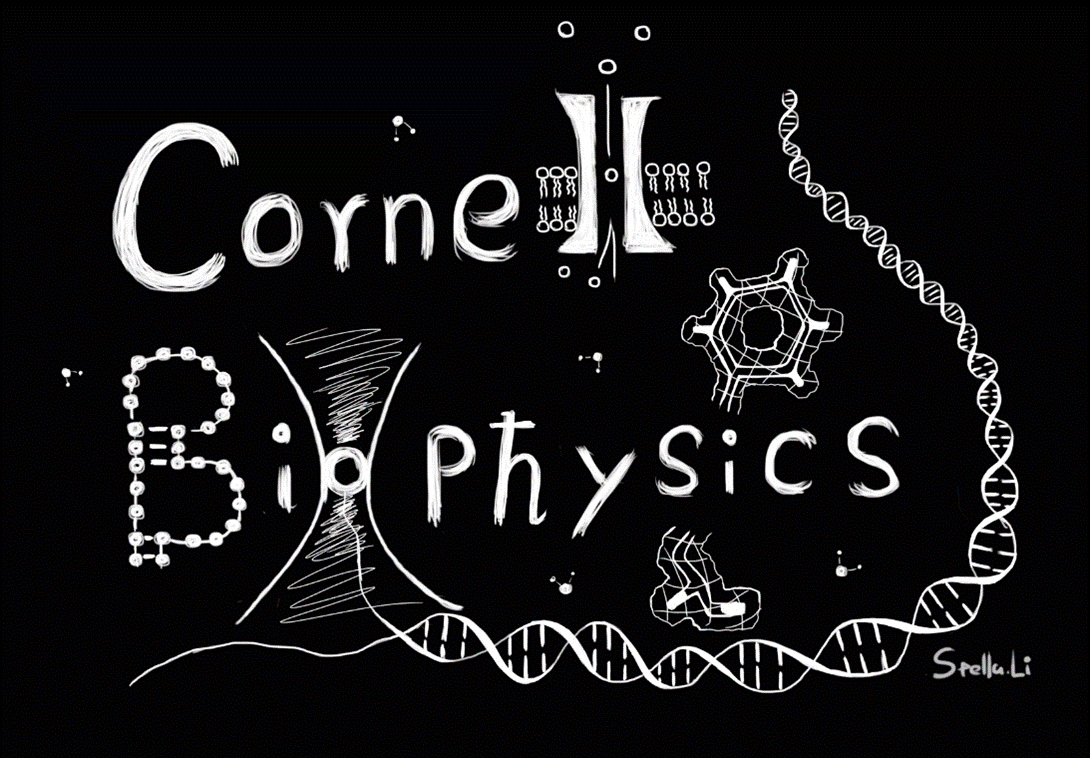Program Overview
The Molecular Biophysics Training Grant (MBTG) Program offers vigorous interdisciplinary training that combines physical and biological sciences. The program further advances the training of our most motivated and well-qualified students by focusing their graduate academic work around a core curriculum in areas spanning both physical and biological disciplines. The trainees selected to participate may have undergraduate degrees in either physical or biological sciences and must have been admitted to the Graduate School at Cornell for training leading to the Ph.D. in one of the Graduate Fields of the twenty-eight participating faculty (spanning eight departments, seventeen fields, and three Colleges). All participating faculty are associated with Cornell’s well established and continuously growing Biophysics Program, and have well-funded quality research programs either in physics with strong biological applications or in biology with strong physical connections.
The overall research interests of the faculty are broadly distributed and include: the investigation of structure and dynamics of proteins and other macromolecules using theoretical approaches; structure determination by synchrotron X-ray crystallography and cryo-EM; electron spin resonance spectroscopy and multidimensional NMR; single-molecule studies of dynamics of molecular motors; structures and molecular mechanisms of cell membranes, receptors, and neurotransmitters and associated cellular functions; and instrument developments including multi-photon fluorescence microscopy, steady-state and time-resolved spectroscopy and imaging, ultra-resolution optical tweezers, and state-of-the-art nanofabricated devices.
Trainees undertake interdisciplinary studies with advanced courses in mathematics, quantum mechanics, statistical thermodynamics, biochemistry, molecular and cell biology, computation and instrumentation, and other special topics. In addition, students participate in multiple program functions including a weekly Biophysics Colloquium, Student Seminars, and Annual Biophysics Symposium. These activities serve to provide continuity and program identity within the far-reaching interdisciplinary structure of the program. Thesis research and collaborations in the laboratories of the participating faculty complete preparation for a career of teaching and research in molecular biophysics. Through these experiences, the trainees gain exposure to, and experience in, interdisciplinary biomedical research.

